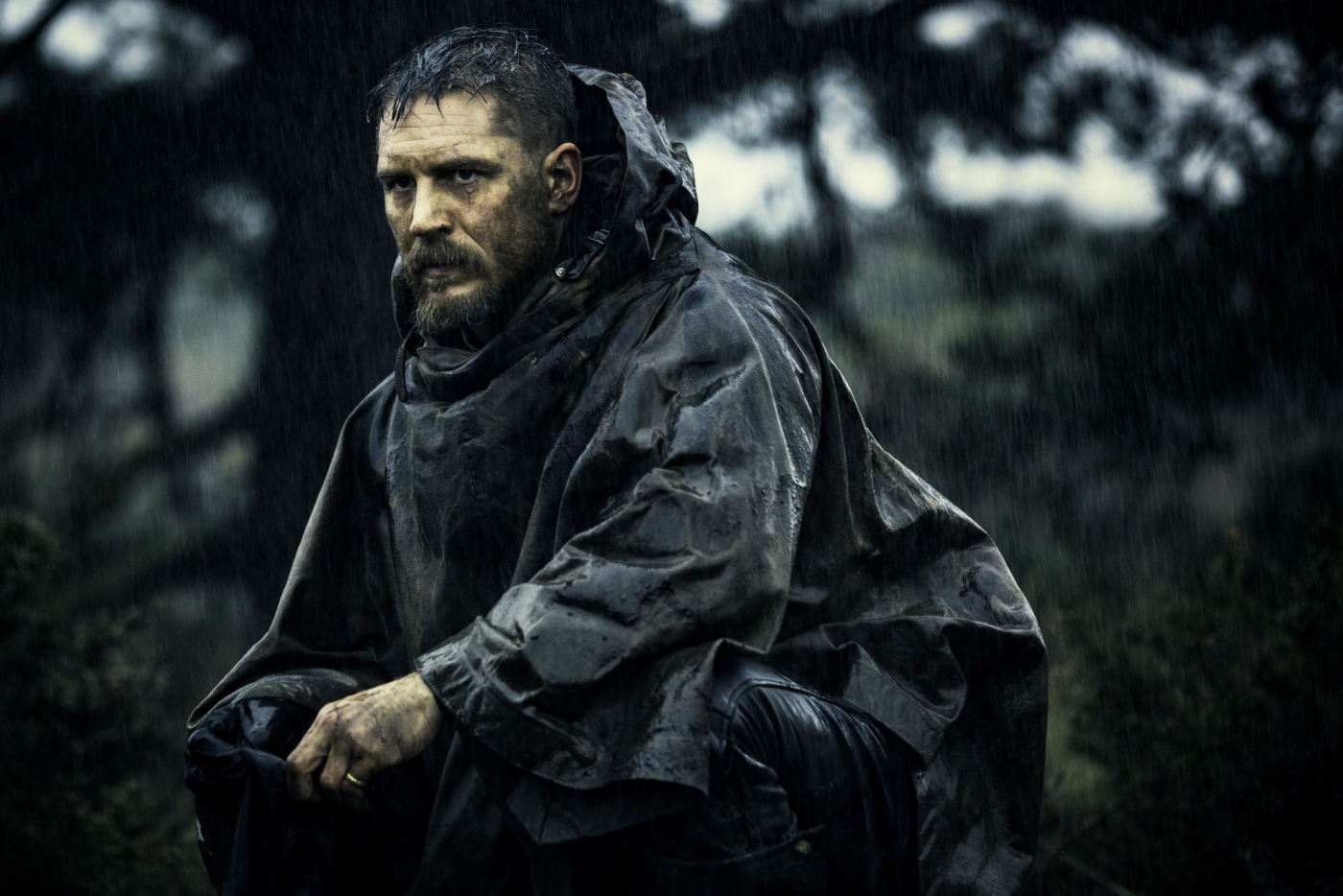
London in the dark | Taboo
George Reynolds explains why Tom Hardy, Taboo and its filthy depiction of London in the 1800s make for the most compelling TV he’s seen in quite some time and why it’s so right for NOW

George Reynolds explains why Tom Hardy, Taboo and its filthy depiction of London in the 1800s make for the most compelling TV he’s seen in quite some time and why it’s so right for NOW

Taboo is almost glacial in its pacing, practically racist in its depiction of Africa, appallingly retrograde in its handling of sexual assault, and borderline infantile in its desperate, provocative attempts to live up to its title.
It is also my favourite show on TV.
I like it because it surprises me; because – like Tom Hardy’s Bronson or Mad Max: Fury Road – it appears built on the logic of improv rather than the prudent measured consideration of TV producers: it is always yes, and; never yes, but.
I like it because it makes me laugh; genuine, laugh-out-loud LOLs at Jonathan Pryce’s piss-on-your-chips snark, or Tom Hollander’s dazed and dusted turn as the chemist Cholmondeley, or Hardy’s permanently po-faced line-readings.
I like it because it is not Sherlock; it is not pleased with itself; it is not bombastic
I like it because it reminds me of the work of the Earl of Rochester, a poet who scurrilously chronicled London high society’s worst excesses (see “A Ramble in St. James’ Park” for an introduction), and who also wrote a tirade against his own flaccid penis. It also reminds me of Swift, or Norman O. Brown’s reading of Swift, “The Excremental Vision”; it presents a messy, scatological vision of life among the Yahoos and the whores and the otherwise unwashed; a world in which the necessary components for the fabrication of gunpowder are human excreta.

Tom Hardy in Taboo
I like it because it is in the dirt, building its world up from a minute focus on the details: the syphilitic nose; the hunks of raw meat glistening redly under an apocalyptic sky; the terrible dentistry.
I like it because it means I get to spend eight hours with a character played by Tom Hardy, the most inherently watchable actor on earth. And to see him stride through this show like an anachronism in a dope hat – both strongman-hench and sporting a high-and-tight that belongs more properly in The Sugar Hut – is to be forced to acknowledge that he has made choices, valid, creative, artistic choices, and that some of them have failed, and some of them have not. And the very act of making this sort of choice, of being free to try and to fail, is a freedom even better and more desirable than the freedom to indulge in excessive, excellent millinery.
I like it because it is extreme, gratuitous in its cruelty and in its violence and in its debauchery.
I like it because other people don’t, because sometimes it feels good to carve something out for yourself, be it a TV show or another man’s heart.
I like it because it is like me at the moment, like my mood all the time these days. Dark, inarticulate, always feeling on the verge of hysteria. Confused, ineffectual. Loses the thread on occasion. Still finding time for flashes of laughter, for good times, though the quality of that mirth feels strained, manic, like people are deliberately having the time of their lives because they feel something about their lives has changed forever. Wide-eyed to the fact that structural racism and structural misogyny have been around for centuries, millennia; empty-handed when it comes to offering a solution. A little paranoid too, you know, like every single thing you see in front of you is a piece of evidence that it’s all going to hell, that it’s not going to end well. Perhaps grimly steering into this pessimism, choosing it as a sort of aesthetic, which is kind of cool and angsty but ultimately doesn’t help very much, creates its own form of stasis. Obsessed with America, with political machinations closer to home, probably to the detriment of the main character, in whose story I should really be more invested; but also probably right in spending at least some time focusing on those things, because you can’t just have the protagonist: there is always a wider world to give their actions meaning and context, isn’t there?
I like it because it is not Sherlock; it is not pleased with itself; it is not bombastic. It is a brooding, stupid mess; it falters; it entertains only fleetingly. Art can bring people satisfaction in an infinity of ways: right now, to me, it simply feels good to luxuriate in Hardy’s meticulously assembled vision of London, to savour some high-camp grand guignol, to feel bad. Tragedy per Aristotle brings catharsis; Taboo offers something no less substantial but devoid of the association with cleansing, leaving purified. It is as satisfying and self-defeating as prodding a sore tooth with your tongue; it is like taking a bath and coming out dirtier. C